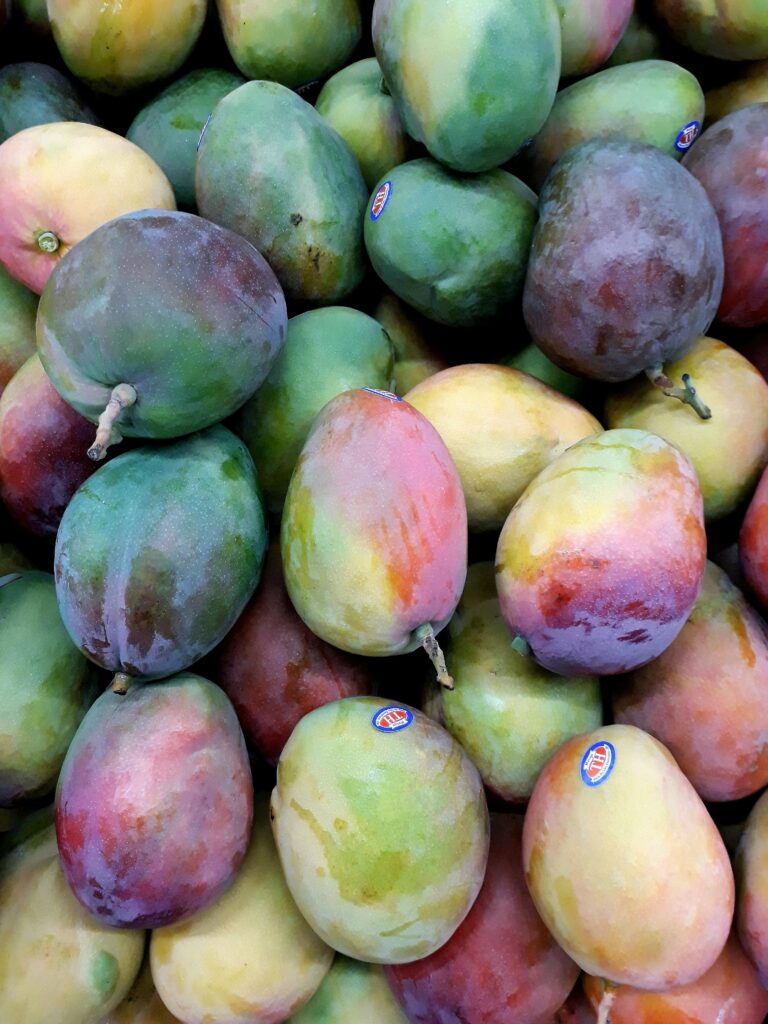
Fast Facts
One cup of chopped mango contains 99 calories
Provides 67% of your daily vitamin C
Rich in vitamins A, C, and E
Contains both soluble and insoluble fiber
Helps improve gut health and control blood pressure
Contains mangiferin, an antioxidant that may help prevent certain cancers.
Mangoes are a common sight in most supermarkets today, available not only in the fresh produce section but also in bags of frozen fruit, trail mixes, and salsas. While many people enjoy their sweet taste, it’s worth exploring whether mangoes are also good for your health. Registered dietitian Carly Sedlacek, RD, LD, highlights the top health benefits of this delectable fruit.
Are Mangoes Good for You?
Mangoes are packed with vitamins, minerals, and fiber, offering significant nutrition with relatively few calories. One cup of chopped mango contains 99 calories and 2.6 grams of fiber. This serving also provides:
- 67% of your daily vitamin C
- 20% of your daily copper
- 10% of your daily vitamins A and E
Additionally, mangoes are good sources of folate (vitamin B9), magnesium, potassium, vitamin B6, and vitamin K.
Mango’s Health Benefits
Mangoes may not solve health problems on their own, but they do offer several significant benefits when included in a balanced diet:
- Improve Gut Health
Mangoes contain both soluble and insoluble fiber, aiding digestion and promoting gut health. Insoluble fiber adds bulk to stool, making it softer and easier to pass, which helps combat constipation and bloating. Fiber also nourishes your gut bacteria, maintaining a balanced gut microbiome. - Support Healthy Weight Goals
The high fiber content in mangoes can help control hunger and support weight management. Fiber-rich foods like mangoes take longer to digest, helping you feel full longer and preventing the quick hunger and fatigue associated with low-fiber processed foods. - Boost Hair and Skin Health
Mangoes are rich in vitamins A, C, and E—antioxidants essential for healthy skin and hair. These vitamins help combat daily environmental damage. While many skincare products contain these vitamins, it’s more effective and safer to obtain them from whole foods like mangoes. - Help Lower Cholesterol
The soluble fiber in mangoes can help lower total cholesterol and LDL (bad) cholesterol levels, which are linked to plaque buildup in the arteries and increased heart disease risk. While the fiber content in mangoes isn’t as high as in whole grains or fruits with skin, it still offers cholesterol-lowering benefits. - Control Blood Pressure
Potassium in mangoes helps counteract the effects of sodium, aiding in blood pressure control. High blood pressure, often symptomless, is a major risk factor for heart disease and stroke. Including potassium-rich foods like mangoes in your diet can enhance cardiovascular health. People with chronic kidney disease or those on certain medications should consult their healthcare provider about their potassium intake. - Help Prevent Some Types of Cancer
Mangoes are rich in antioxidants, including mangiferin, which may help protect cells from damage that can lead to cancer. Studies suggest that mangiferin may lower the risk of cancers such as brain, breast, cervix, colon, and skin cancers. While no single food can prevent cancer, including antioxidant-rich foods like mangoes can reduce overall cancer risk.
How to Eat Mango
Mangoes are a healthy way to satisfy a sweet tooth and can be enjoyed in various forms:
- Fresh: Add peeled, chopped mango to oatmeal, salads, salsas, smoothies, and yogurt.
- Grilled: Grilled mango makes a sweet side dish for summer cookouts.
- Baked: Include chopped mango in whole-grain muffin recipes or try a mango almond cake for a healthy treat.
- With Fish: Use mango as a topping for fish tacos or pair it with salmon for a delicious meal rich in omega-3 fats.
Be Aware of Allergic Reactions
Always wash and peel mangoes thoroughly before eating. The peel contains urushiol, an oil that can cause skin rashes similar to poison ivy. If you experience itching when handling mangoes, wear gloves to avoid contact with the skin.
A Superfood Worth Trying
With its wealth of vitamins, minerals, and fiber, mango is a nutritious addition to your diet. The versatility of mango in both sweet and savory dishes ensures there’s a recipe for everyone.
“Mango is often called a superfruit because it’s chock-full of nutrition,” reiterates Sedlacek. “Enjoy mango along with other fruits, like apples, blueberries, and cherries, for well-rounded nutritional benefits.
A Quick Review
Mangoes are a nutrient-dense fruit packed with vitamins, minerals, and fiber. They support gut health, aid in weight management, and improve skin and hair health. The soluble fiber in mangoes helps lower cholesterol, while potassium helps control blood pressure. Antioxidants in mangoes, like mangiferin, may reduce the risk of certain cancers. Enjoy mangoes in various dishes, but be cautious of potential allergic reactions to the skin.











